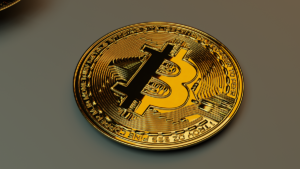How Secure Is Using Bitcoin for Online Purchases?

By using Bitcoin, people can make online purchases of goods and services without having to use cash. A secure network is used for transactions, and no private information is disclosed. Because of this, people who want to keep their financial transactions private frequently choose it. However, there are some risks involved with using Bitcoin because no government or financial institution regulates it. Before you begin using Bitcoin, you should be aware of the following.
A Synopsis of Bitcoin’s History
Bitcoin is a digital asset and means of payment that was created by Satoshi Nakamoto. Blockchain is a distributed public ledger where transactions are stored and cryptographically verified by network nodes. Under the pseudonym Satoshi Nakamoto, a person or group of people created Bitcoin in 2009. Without a middleman, transactions can be completed without using a bank. You are not required to give your full name, and there are no transaction fees. They are starting to be accepted in more businesses; you can use them to pay for pizza, manicures, web hosting, and more. You can buy things anonymously using bitcoins. International transfers are also quick and affordable thanks to bitcoins’ lack of regulatory oversight and affiliation with any one government.
How Bitcoin Became a Payment Option
Most people had never heard of Bitcoin until recently. But as a means of payment, this virtual currency has grown in acceptance, especially in the wake of the COVID-19 pandemic. Bitcoin is a decentralized currency, so it is not impacted by market fluctuations like conventional currencies are. Additionally, the speed and security of Bitcoin transactions make it a desirable option for both consumers and businesses. More companies have started taking Bitcoin as payment in recent months. As more people learn about the advantages of Bitcoin, this trend is probably going to continue. As a result, Bitcoin is likely to overtake traditional payment methods in the coming years.

How Bitcoin Functions
Because there are only 21 million of them, bitcoin is unique. As a result, in order to verify and record bitcoin transactions in the “blockchain,” a publicly accessible, shared ledger of all bitcoin transactions, miners must compete with one another to solve challenging mathematical problems. As more miners join the network, this process becomes more challenging, providing miners with an incentive to stay honest and avoid gaming the system by validating erroneous transactions.
Cheating would also require significant computing power investments to keep up with the competition, which is escalating as more miners join the network. Additionally, until the maximum supply of 21 million bitcoins has been reached, every new valid block of bitcoin transactions generates newly created bitcoins, at the current rate of 12.5 per block. Everyone has the incentive to participate in mining and thereby validate blocks as they are created thanks to this process. Finally confirmed through this process about six times in a 10-minute period. Unfortunately, as more miners join the network and attempt to solve the math problems, they become progressively more challenging.
A payee can check the ownership chain by examining each previous transaction. Because bitcoin transactions are irreversible, unlike traditional check endorsements, there is no chance of chargeback fraud. When conducting transactions, businesses frequently keep bitcoins on behalf of customers in order to avoid having to wait for blockchain confirmations before delivering goods or services. Some investors have also bought bitcoins purely as investments, anticipating that they will increase in value. However, rather than real money, many people compare bitcoin to gold due to its volatility. The future viability of bitcoin is unknown, but the blockchain technology that underpins it seems to be here to stay.
Read More: How To Earn Free Cryptocurrency Coins In 2023
Bitcoin Blockchain
Blockchain is a digital ledger that can securely and irrevocably record all kinds of data. across a distributed network effectively. This suggests that blockchain has the potential to be used for everything, including managing identity and land registry records, as well as stock trading and vote counting. Financial middlemen like banks and clearinghouses could be completely eliminated from financial transactions, settlements could occur almost instantly instead of taking days, and identity theft could become a thing of the past thanks in large part to data being spread across millions or billions of computers rather than being concentrated in databases that hackers could target. Corruption would be much more difficult to cover up because all of this information would be shared openly and transparently on a blockchain ledger.
The ability of blockchain to provide security, efficiency, and trustworthiness has already started to win over some converts in both the business world and government institutions, even though there are still many obstacles that must be overcome before it can truly realise its potential. The future of bitcoin itself will only be revealed with time.
What Benefits Does Bitcoin Offer?
Bitcoin differs from conventional fiat currencies in a number of significant ways.
Decentralization
The fact that Bitcoin is decentralized is its most significant feature. The Bitcoin network cannot be managed by a central authority or middleman. As a result, you can send and receive bitcoins directly from users without using a bank or other financial institution.
Pseudonymity
The fact that Bitcoin allows for pseudonymous transactions is another crucial feature. This implies that when you complete a transaction, your identity is kept a secret. This has some drawbacks in addition to making it challenging for authorities to track down illegal activity.
Borderless exchanges
Cryptocurrency also has the benefit of enabling worldwide transactions. This means that regardless of where you are in the world, you can send and receive Cryptocurrency.
Quick and affordable transactions
Cryptocurrency also has the benefit of quick and affordable transactions. For instance, confirmation of transactions typically takes a few minutes and is much cheaper than using a traditional bank.
Limited availability
The fact that there is a finite supply of Bitcoin is one more benefit. Only 21 million bitcoins will ever be produced. Because of this, Bitcoin is deflationary, which means that as demand grows, so will its value.
How to Securely Use Bitcoin
You might be wondering how to use Bitcoin safely, even if you use it to purchase a gift card, now that you understand what it is and why it’s significant. Here are some pointers:
- Store your bitcoins in a safe place.
- Never divulge your private key to anyone.
- Utilize a trustworthy Cryptocurrency exchange
- Be mindful of the dangers
- Spread out your cryptocurrency holdings.
Conclusion
You have it now! That is all there is to know about Bitcoin. Although it is still a risky investment, its potential for long-term growth makes it worthwhile to take into account. Be cautious and only invest money that you can afford to lose.











